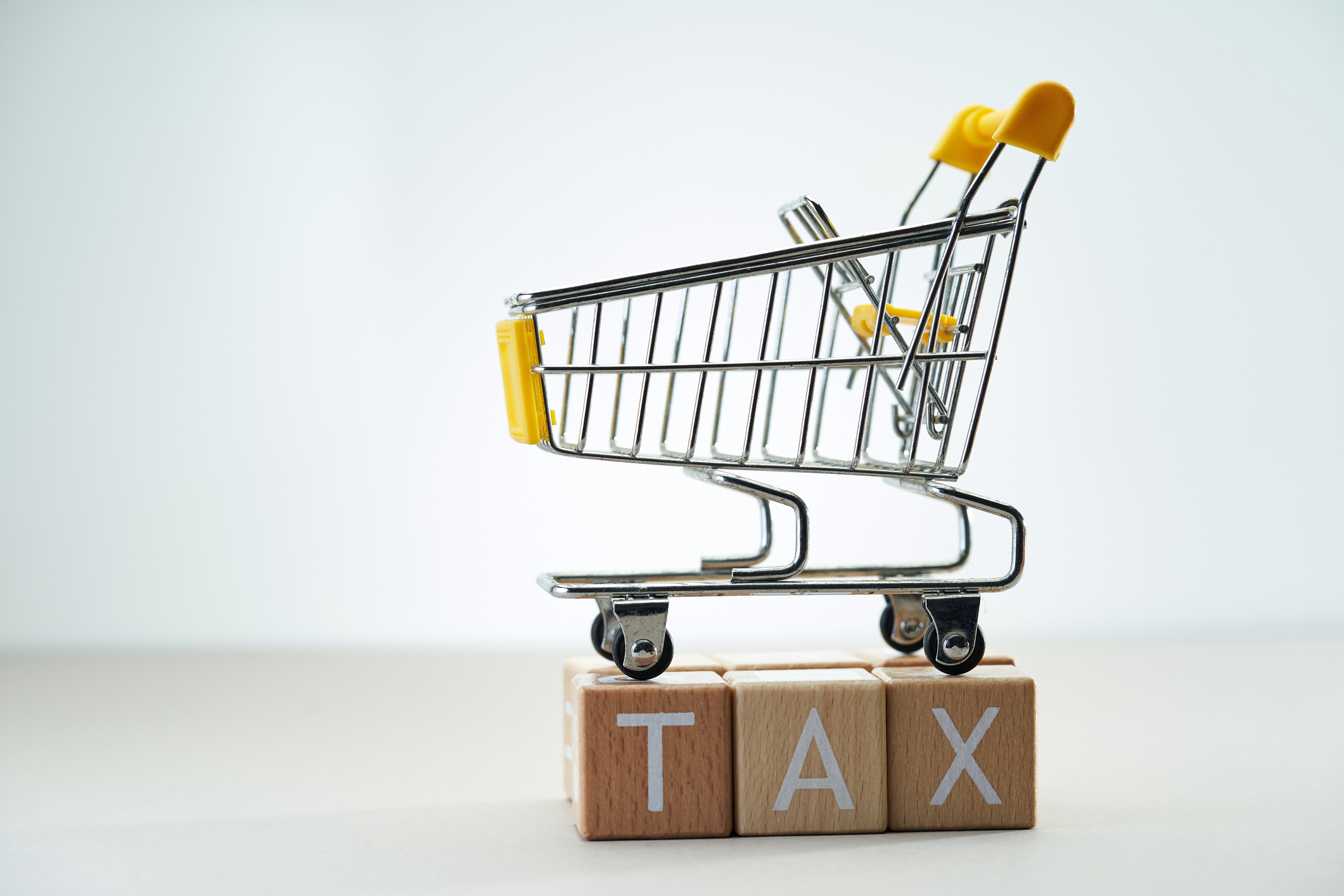Tackling Non-Compliance in E‑Commerce: VAT, GST, and Sales Tax

The explosive growth of e‑commerce has enabled businesses to reach new customers around the world. However, this globalized digital marketplace has also created compliance confusion and evasion schemes that present new challenges for Tax and Revenue Authorities.
Governments rely on revenue generated by VAT, GST, and sales tax to provide critical public services that improve the quality of life for their citizens. The global order-of-magnitude for government revenue lost that’s relevant to e-commerce (VAT/GST gaps on online sales, cross-border small-parcel under-collection, plus part of corporate/individual tax abuse linked to digital commerce) is well into the hundreds of billions of USD annually, with US$492 Billion as a widely cited upper bound for total tax abuse across all channels.
The rise of hosted storefront platforms has made it easier than ever to start selling online, but many of these tools offer limited guidance on collecting VAT, GST, and sales tax—leaving sellers uncertain about their responsibilities. In addition, many digital sellers have identified ways to evade taxes, creating a serious issue for governments administering compliance in the e‑commerce sector. In many countries, authorities are struggling with lost revenue, and non-compliance is harder to detect using traditional methods. For example, the UK’s tax agency HMRC labeled online VAT evasion by overseas sellers a “very big issue,” estimating it cost the UK up to £1.5 billion in lost tax each year[1].
What Is VAT, GST, and Sales Tax?
Value Added Tax (VAT) – known as Goods and Services Tax (GST) in some countries – is a type of consumption tax applied incrementally on the “value added” at each stage of production or distribution of a good or service. In a VAT/GST system, businesses charge a percentage tax on their sales but can claim credits for tax paid on their inputs, so the tax essentially applies to the profit or value each business adds.
Sales Tax is another form of consumption tax, but it works a bit differently. A sales tax is usually a single-stage tax charged as a percentage of the retail price at the point of sale to the end consumer. Unlike VAT, sales tax is generally collected only on the final sale to the consumer (not at each supply chain stage). For instance, in the United States – which does not have a federal VAT – most states impose sales taxes on retail goods and some services. The retailer adds the tax to the price at checkout and later remits it to the state. Sales taxes are also indirect taxes on consumers, but the compliance burden falls solely on the final seller.
Why Tax Non-Compliance in Online Sales Is a Big Problem
Tax non-compliance undermines both government finances and fair competition in the marketplace. When online sellers – whether knowingly or unknowingly -- evade VAT, GST, or sales tax, several harmful consequences follow:
Revenue Loss: Governments lose significant tax income needed for public services and infrastructure. The scale of loss can be huge. In the EU, for instance, VAT fraud (including online evasion) has been estimated to cost member states tens of billions of euros annually[2].
Unfair Competition: Online businesses that knowingly or unknowingly dodge taxes gain an illicit price advantage over those who comply. If a seller doesn’t add, say, a 20% VAT to their prices when they should, their goods can appear much cheaper than compliant competitors’ products. This distorts the market. Compliant retailers – both online and brick-and-mortar – struggle to compete with non-compliant rivals who undercut prices by not charging required taxes.
Erosion of Trust and Compliance: When tax non-compliance is widespread, it can create a culture of non-compliance. Law-abiding sellers may feel like “suckers” for following rules. Consumers might also grow accustomed to tax-free online shopping and resist paying tax on digital purchases, further normalizing non-compliance. This dynamic undermines the overall tax system’s integrity.
In short, tax non-compliance hurts everyone – governments lose revenue for vital services, compliant businesses lose customers, and citizens lose trust in the system. Policymakers worry that widespread non-compliance in e-commerce is undermining both local businesses and tax revenues[3], making it harder to maintain public services and a fair market. That’s why many countries now view cracking down on e-commerce VAT/GST non-compliance as a high priority.
What are Governments doing to resolve this?
The European Commission issued guidance to help EU states to enact blocwide value-added tax rules for the digital economy, including real-time e-invoicing on cross-border transactions. The VAT in the Digital Age rules and guidelines aim to make big technology platforms, such as Uber and Airbnb, responsible for collecting VAT payable by users on their platforms. These actions are expected to bring in over $202 billion USD (net benefits) over the next 10 years.
The Crypto-Asset Reporting Framework (“CARF”), introduced by the Organization for Economic Co-operation and Development (“OECD”), establishes a framework under which reporting crypto-asset service providers (“RCASPs”) must collect and report details on crypto-asset users and crypto-asset transactions to tax authorities, particularly those that have a VAT/GST obligation under tax law. The data will be exchanged between tax authorities internationally to target local non-compliance.
The UK’s decision to implement CARF and apply the regime to domestic reporting initiates a key milestone for HMRC’s to monitor crypto-asset activity. HMRC predicts the introduction of CARF will raise £350 million between 2026 and 2030.
The UAE Ministry of Finance has also signed the Multilateral Competent Authority Agreement on the Automatic Exchange of Information under CARF, following its announcement of its intention to implement the framework last year.
How IVIX Helps Governments Bring E-Commerce Sellers into Compliance
IVIX provides tax authorities with cutting-edge OSINT (Open-Source Intelligence) solutions that uncover hidden e-commerce activities and pinpoint non-compliance. By scanning millions of online data points — from marketplaces and online forums to payment data — IVIX helps identify sellers who should be registered for VAT, GST, or sales tax but aren’t. In addition, IVIX identifies sellers who are registered but not charging VAT, GST, or sales tax at all, or are not charging the correct amount. This proactive detection allows tax agencies to close gaps before revenue is lost.
IVIX’s solutions also help address a critical gap in modern financial crime detection. Criminal networks increasingly use sophisticated methods including cryptocurrency transactions, shell companies, offshore accounts, and high-speed micro-transactions that traditional tools struggle to track. IVIX claims 99% accuracy in entity identification and 97% accuracy in detecting non-compliance, with over $1 billion in previously hidden business activity uncovered across its customer base.
Beyond detection, IVIX supports risk scoring and compliance prioritization, enabling governments to focus on the highest-impact cases first. Tax authorities using IVIX can quickly match online storefronts to real-world entities, estimate their likely revenue, engage them for registration, and ensure they’re collecting the right amount of VAT, GST, or sales tax — without the need for time-consuming audits. The result is higher compliance, fairer competition, and restored public confidence in the tax system.
If you would like to know more, please contact Joseph Musolino via linked in or visit the IVIX at https://www.ivix.ai/.
#IVIX #Ecommerce #VAT #GST #SalesTax #GlobalTrade #TaxCompliance #DigitalEconomy #CrossBorder




































